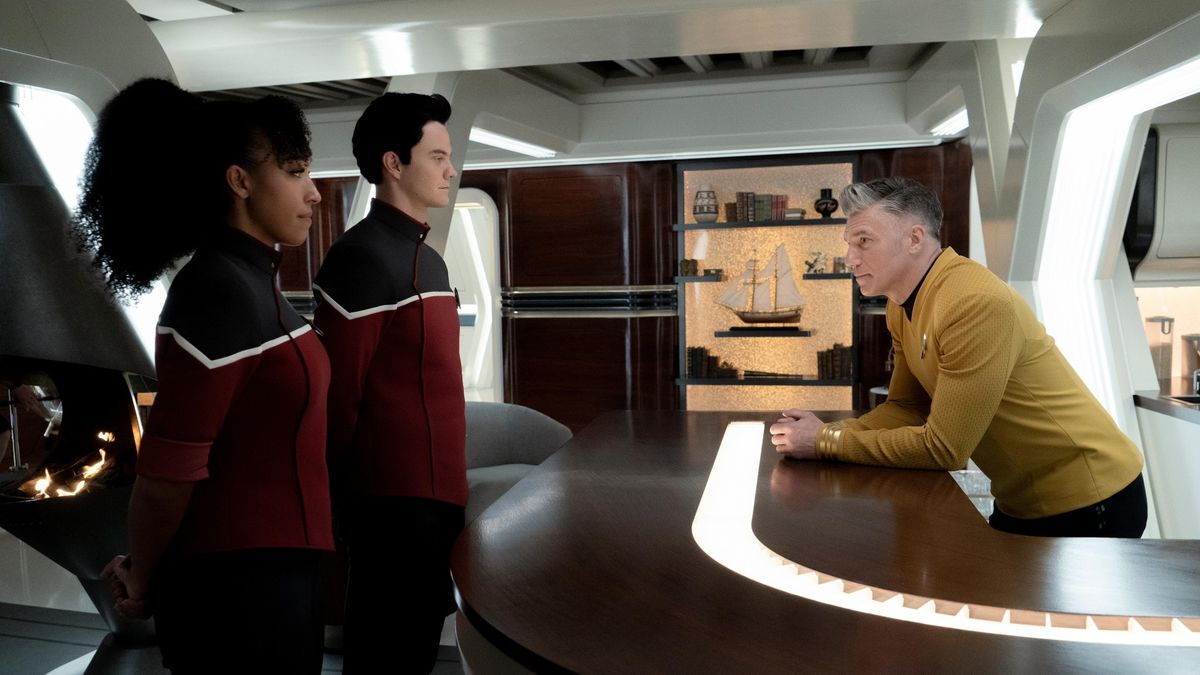An interesting, deliberately thought provoking 🤔 question for a lazy long weekend Sunday morning…
Setting aside whether specific fans like specific ‘gimmicks’ (crossovers, musicals, bringing back Kirk or Khan) or tropes (transporter malfunctions), Space.com is posing the hypothesis that the proportion was too high in Strange New Worlds second season.
There’s no arguing that the season was successful in drawing in large audiences week after week. Taking a look back though, was there too much trippy-Trek™ dessert and not enough of a meaty main course? YMMV surely.
For my part, I can both agree that trippy Trek is something I’ve been wanting more of, and that I would have welcomed 2 or 3 more episodes were more grounded or gave the opportunity to see more of Una as a leader and dug into Ortegas backstory.
The 90s shows seemed to be bit embarrassed by trippyness, although Voyager found its pretext allowed even stern Janeway to pronounce ‘Weird is our business.’ One can argue that the high proportion in SNW is a feature, not a bug.
I’d still prefer a 12-15 episode season though.



I’d argue that the Star Trek history weighs it down more than that. Even without the historical references, much of the shows seem to be held back by the trying to live up to it, or having to stick to the same formula. Enterprise and Voyager famously suffered from considerable network meddling to try and recapture TNG, for example.
It could work, but it also means that much of any social commentary that does show up is a bit hampered, since the network wants a safe, conservative star Trek show (and the fans might be partly to blame, because they also want more of the same too, so much of the time).
A modern TOS that pushed boundaries as the original could never be made under the same brand. It’s far too controversial for the network to accept, with all of its progressive and social commentary elements intact.
Not that it’s a fault of Star Trek’s specifically, just an issue with how big it has become. If the Orville became a similarly established brand, instead of Star Trek, it would almost certainly have had the same issues.